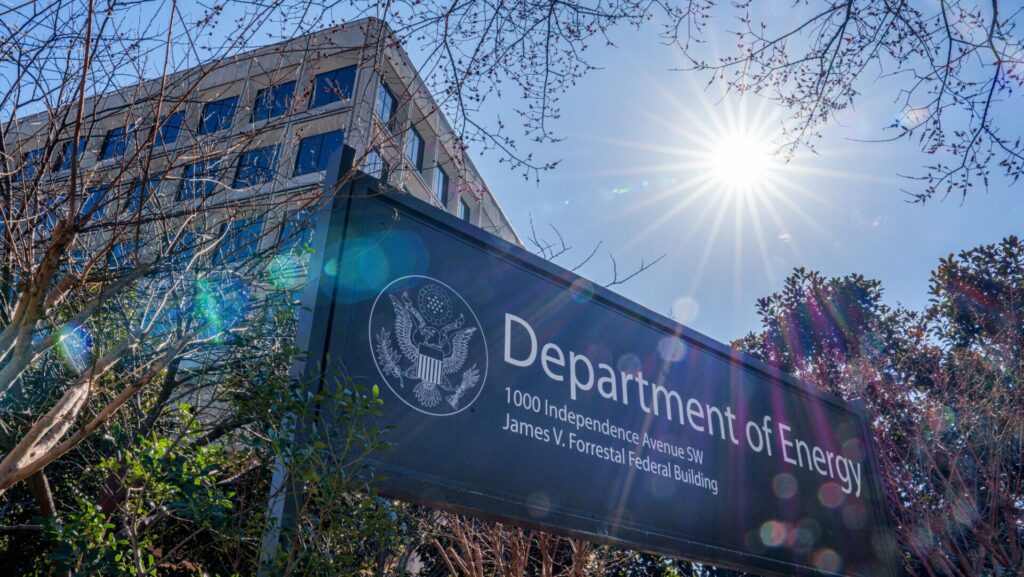A Department of Energy (DOE) contractor lost his security clearance after being duped by someone online into believing he was a famous actress.
The contractor embezzled $3,800 from a nonprofit and sent it to a “celebrity,” then got into a physical fight with his family when they found out. The fight landed him in jail, and after he was released, he didn't report the arrest and embezzlement to his employer. When the DOE asked him why, he said he thought the documents they sent him were part of an elaborate phishing scam.
The DOE is the government agency that manages the United States' nuclear arsenal. They do everything from researching new nuclear weapons, maintaining missile silos, and disposing of nuclear waste. As part of their work, the DOE employs many contractors who require security clearances and sometimes access to nuclear material.
On June 28, 2024, an administrative judge revoked a contractor's security clearance for embezzling money from a nonprofit organization and paying it to someone he met online who claimed to be a famous actress. The man claimed he paid the money back, but things spiraled out of control, resulting in him being charged with assault, taking anger management classes, and receiving a restraining order from his wife and children.
“During the hearing, the individual testified that he still did not know who he had been speaking with online, but when questioned, did not deny the possibility that it may have been an actress,” the Department of Energy said in a press release about the hearing.
“She said she was at a time in her life where she needed someone but she couldn't find anyone where she was – in California – that she wanted to be with,” the man said when asked about the fake celebrity, according to court documents. “But her meme, the little picture in the corner, was a picture of her. So, I mean, I suppose anyone can find a picture off the internet and put it up there, but that wasn't the reason. I mean, the way she spoke and the way she talked and everything, I just couldn't believe it wasn't her.”
Sometime before December 2023, the contractor met someone online who he said was a famous actress. The report did not identify the actress. During the relationship, contractor “purchased gaming gift cards totaling $180 for her children, purchased a $500 security card for her, and sent her $3,207.88 in fees related to a vehicle he believed she purchased for himself,” according to court documents.
To get to the cash, he embezzled money from a nonprofit organization where he served as a board member, and, according to court documents, he admitted to stealing money from another board member during a meeting held at his home.
“While he was speaking to the officer about this conduct, his wife returned home and learned about the conduct. He testified that his wife and the officer were upset by the news and that he had 'two women in the room.' [his] “He screamed in his face,” court documents state.
According to the report, the screaming attracted the attention of the man's two sons, which escalated into a physical confrontation. The contractor tried to leave the house, but the sons wouldn't let him. A “shoving fight” ensued, injuring one of the sons and pinning him to the floor. The contractor left the house. When he returned, the police were there. He was arrested, and everyone in the house, including a woman who served with him on the nonprofit's board of directors, got restraining orders against him.
If someone with security clearance breaks the law, they're supposed to report it to their employer. The DOE said the former contractor called and left a message on his answering machine. His boss then sent him paperwork to report the arrest, but he didn't file it until someone confronted him.
“He refused to complete the form because he suspected the request was an email phishing scam,” the Department of Energy press release said.
“He testified that he could not explain why he doubted its legitimacy. [DOE’s] “He sent thousands of dollars to strangers online, but not via email. He presented evidence that he repaid the stolen money to the nonprofit,” court documents state. “At the time of the hearing, the protective order was still in effect.”
The Department of Energy did not respond to Gizmodo's request for comment.

